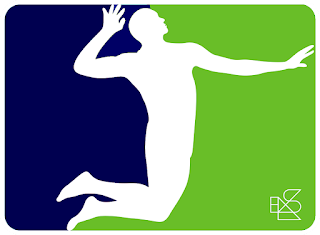Identifying and Developing Talent
Talent is defined as 'a special often athletic, creative, or artistic aptitude'. It is also a unit of weight. Both definitions seem to be equally relevant when we are 'evaluating' or 'identifying' talent.
Sometimes we define the talented as 'racehorses', and the untalented as 'camels', but even that implies that there is a clear identifiable delineation between horses that win and camels that don't. The reality is that in horse racing, a topic I admittedly know little about, I don't think they allow camels to race. I also don't think that the favourite always wins, and gamblers know a bit about who should be favourite. They have, after all, a vested interest. They look at the horse, find out how it has been training, look at its past history, its genetics. They look at the type of track it will race on and compare it to its other successes and failures, then they start looking at the trainer and jockey and what their strengths and weaknesses are. Then they make a bet, and based on the volume of money that is gambled, the favourite is decided. After all this, the favourite only wins approximately 1/3 of the time.
What is the point? The point is that no matter how much we try, and how much we want to 'back winners', we are not very good at making this assessment.
Having said all this, the issue here isn't necessarily how well we judge talent, but how we define success at the elite level. Too often we look at the 'best' and assess them based on their physical ability. However, we forget that two critical building blocks of an elite athlete's physical ability are, how good they are at exploiting this in elite competition, and how hard did they work to ensure that their physical abilities are optimised.
I often ask coaches to rank the following 4 traits in terms of importance for an elite athletes:
- athleticism
- height (I am a volleyball and beach volleyball coach, so height is important)
- love of competition
- love of the game
Now, does this mean that someone who is 180 cm, athletic, super competitive and loves the sport can be successful at the highest level in volleyball? No, not really. But does it mean that 2 of the major indicators of success (competitiveness and the ability to work hard for a long period of time) are not really things that can be assessed in a short period of time.
So what does all this mean? It means that when assessing talent we need to be very careful. We can't afford to be seduces by athleticism and call that talent. It is not. All we need to do is look a the the top 'athletes' from any given Draft Camp or Combine, then track their success over time, and we can see that 'athleticism' is misleading, particularly in team sports.
Talent is defined as an aptitude for success in a given area. It is this area that we need to most carefully define in order to determine if someone has a talent for it. If we don't get this right then we may as well just define talent as 'weight', or 'height' and select based on that alone.



Don't forget the Wonderlic test used at the combine, which also seems completely useless in identifying NFL talent.
ReplyDeleteIn the Talent Code, many of the teachers in the talent hotbeds observed that very few of their successful proteges were remarkable in their attributes. So I think there's an element of the "prerequisite physical requirement" to compete, then the personal quality of being able to stick at it for a long time (there's tests that find this too).
Recently when we picked out who our squad should be for a tournament, I asked the 4 coaches/selectors to assess the candidates on 4 criteria:
1) What they bring in competition
2) What they bring in practice
3) What they bring off the court (a big factor in tournaments where you can't avoid each other as much)
4) What they bring to the sport long term.
It was helpful and we were happy with the group we picked. I could see how it could apply to other selections by tweaking the "weighting" for each criteria. Working with others and making them better has to be criteria in teams sports.... as well as being able to help coaches and other support staff to help you.
Thanks for the comment.
DeleteThose 4 categories are interesting when making selections. The toughest thing for me is the weighting that they have. I'm not sure its possible to answer - but I wish it was.
What I'm finding more and more is that as much as we want to develop athletes as fast as we can, we need to allow them space to grow and learn themselves. Ultimately any athlete who will be successful (at the highest level) must be capable of motivating themselves. And if we want to find out who has this trait, we need to help nurture it, or at least, not stifle it!